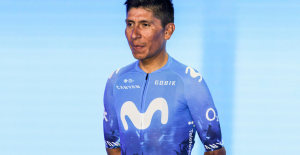To successfully resist the greatest power that has ever walked the earth is an achievement. It takes some military prowess and a lot of sheer willpower. A rebel in North Africa named Tacfarinas managed to do this for a full eight years: he involved Rome in the south of the province of Africa Proconsularis in various battles from 17 AD, which occupied several legions and proconsuls one after the other. In the meantime, Tacfarinas even enraged the emperor Tiberius.
There were good reasons for the emperor's anger: this region of North Africa was an important provincial area of the extensive Roman Empire, especially in economic terms during the imperial period. Large quantities of grain were grown and exported near the coast, it was the granary of the empire. You couldn't lose this treasure.
Some researchers see the specific reason for the uprising in failed Roman policies. They refer to the late antique historian Paulus Orosius (ca. 385 to after 418), who reports that around the year 6 AD, Proconsul Cossus Cornelius Lentulus crammed the Musulamians and Gaetulians into very narrow territories, which was the background for the uprising has been. According to this interpretation, the last straw was the construction of a road from Ammaedara to Tacape, right through the territory of the Musulamians, in the years 14/15. The proconsul Lucius Nonius Asprenas had ordered this in order to have better control of the areas west of the small Sirte.
Tacitus reports on the rebellion of Tacfarinas himself in books II, III and IV of his late work "Annales", which was probably created around 110 and 120 AD. He is the only ancient historian to detail the rebellion. Did he add importance to the incidents, since they gave him a welcome opportunity to criticize Emperor Tiberius, the proconsuls involved, and the Senate?
In any case, Tacitus stylized Tacfarina's leader as a freedom hero. There are clear parallels to his descriptions of other "barbaric" insurgents, in particular to the Cheruscan prince Arminius, who destroyed three Roman legions in the legendary battle in the Teutoburg Forest in 9 AD. Like Tacfarinas, Tacitus described Arminius with positive attributes such as "innate passion", attesting to his military cunning and cleverness. The “uncorrupted savage” thus stood in contrast to Roman decadence. He often only quoted derogatory terms in relation to Tacfarinas and in the end let him die a dramatic, heroic martyr's death.
The fact that Tacfarinas of all people became the leader of the uprising was probably due to his military training: like Arminius, he had once been in the service of his later opponents, as a member of the Roman auxiliary troops. However, he allegedly deserted and undertook various raids with looting.
He used his knowledge of Roman war tactics for his uprising. When Tacfarinas' tribe, the Musulamians, allied with the neighboring Moors, Cinithians and Garamantes against Roman rule, he trained some of the tribal troops and provided them with weapons based on Roman models.
The first big confrontation in 17 ended in a fiasco for Tacfarinas. After the clear victory of the Romans, the alliance of the tribes seems to have broken up immediately.
However, Tacfarinas was not discouraged and continued the attacks on Roman positions as a kind of private war on his own initiative. From formerly more than 20,000 fighters he now had only a remainder of up to 2000 men, which is why he gave up his original plan to set up a large army based on the Roman model. Instead, he reverted to the more flexible traditional cavalry style of the nomads, a tactic that initially paid off.
Thus Tacfarinas captured a Roman camp on the Pagyda river. The commanding centurion, Decrius, had underestimated the attackers despite long military experience and left the fortifications with his 500-strong unit. In the open field, the Romans failed miserably against the numerically superior enemy: most of the legionnaires fled and abandoned their centurion, who faced the enemy all alone and died. As punishment, after the debacle, every tenth man of the dishonored cohort was chosen by lot and beaten to death. According to Tacitus, this particularly severe collective punishment, which still resonates today in the word "decimate", was actually no longer in use at that time.
The Legio IX Hispana from Pannonia soon reinforced the Roman troops. Nevertheless, Tacfarinas managed to escape his pursuers for a long time and avoid a decisive battle. He also sent an offer to Tiberius, proposing negotiations to end the war. Should he and his army be assured of impunity, as well as residences and farmland, he would cease the attacks. Otherwise there would be endless war.
Tiberius refused any negotiations. He was outraged that a rebel would dare to dictate terms to the emperor rather than surrender. After all, they didn't talk to the rebellious gladiator Spartacus, and certainly not to the common robber Tacfarinas ("desertor et praedo hostium"). All who renounced Tacfarinas were to be granted an amnesty. The Emperor promised no more.
Thus Tacfarinas' attacks in the province continued. Annoyed, Tiberius now declared war to be a top priority: he intervened in the Senate when it came to naming the new proconsul. Then Quintus Junius Blaesus was sent to Africa Proconsularis.
Blaesus changed the Roman battle strategy: in response to Tacfarinas' successful guerrilla tactics, he divided his legions into smaller units that hunted the rebel. This successfully adjusted to the opponent's fighting style. He also had numerous forts built. This enabled the Romans to encircle the insurgents and inflict heavy casualties on them. Narrowly, Tacfarinas fled into the desert.
Tiberius then declared the war over and honored the proconsul: Blaesus received the "ornamenta triumphalia", i.e. the insignia of a triumph (in the principate there were only real triumphal processions for the emperors themselves), and even the acclamation as imperator. This was an honor rarely given at the time.
The Legio IX Hispana withdrew Tiberius from North Africa in 23. When Publius Cornelius Dolabella became Blaesus's successor in the same year, the Romans had still not caught hold of the fugitive insurgent. The war wasn't quite over yet.
This only succeeded when highly motivated regular units and Moorish auxiliaries caught Tacfarinas in his hiding place in the half-ruined Roman fort Auzea in a morning surprise attack. Surrounded on all sides and without bodyguards, he preferred to throw himself into the enemy's shellfire than to be taken prisoner.
When parts of the Musulamians rose again against foreign rule, Dolabella had the responsible tribal leaders beheaded on the spot. Thus the resistance of the nomadic tribes in Africa Proconsularis was largely broken. North Africa remained firmly in Roman hands until the 3rd century.
You can also find "World History" on Facebook. We are happy about a like.

 His body naturally produces alcohol, he is acquitted after a drunk driving conviction
His body naturally produces alcohol, he is acquitted after a drunk driving conviction Who is David Pecker, the first key witness in Donald Trump's trial?
Who is David Pecker, the first key witness in Donald Trump's trial? What does the law on the expulsion of migrants to Rwanda adopted by the British Parliament contain?
What does the law on the expulsion of migrants to Rwanda adopted by the British Parliament contain? The shadow of Chinese espionage hangs over Westminster
The shadow of Chinese espionage hangs over Westminster Colorectal cancer: what to watch out for in those under 50
Colorectal cancer: what to watch out for in those under 50 H5N1 virus: traces detected in pasteurized milk in the United States
H5N1 virus: traces detected in pasteurized milk in the United States What High Blood Pressure Does to Your Body (And Why It Should Be Treated)
What High Blood Pressure Does to Your Body (And Why It Should Be Treated) Vaccination in France has progressed in 2023, rejoices Public Health France
Vaccination in France has progressed in 2023, rejoices Public Health France The right deplores a “dismal agreement” on the end of careers at the SNCF
The right deplores a “dismal agreement” on the end of careers at the SNCF The United States pushes TikTok towards the exit
The United States pushes TikTok towards the exit Air traffic controllers strike: 75% of flights canceled at Orly on Thursday, 65% at Roissy and Marseille
Air traffic controllers strike: 75% of flights canceled at Orly on Thursday, 65% at Roissy and Marseille This is what your pay slip could look like tomorrow according to Bruno Le Maire
This is what your pay slip could look like tomorrow according to Bruno Le Maire Sky Dome 2123, Challengers, Back to Black... Films to watch or avoid this week
Sky Dome 2123, Challengers, Back to Black... Films to watch or avoid this week The standoff between the organizers of Vieilles Charrues and the elected officials of Carhaix threatens the festival
The standoff between the organizers of Vieilles Charrues and the elected officials of Carhaix threatens the festival Strasbourg inaugurates a year of celebrations and debates as World Book Capital
Strasbourg inaugurates a year of celebrations and debates as World Book Capital Kendji Girac is “out of the woods” after his gunshot wound to the chest
Kendji Girac is “out of the woods” after his gunshot wound to the chest Skoda Kodiaq 2024: a 'beast' plug-in hybrid SUV
Skoda Kodiaq 2024: a 'beast' plug-in hybrid SUV Tesla launches a new Model Y with 600 km of autonomy at a "more accessible price"
Tesla launches a new Model Y with 600 km of autonomy at a "more accessible price" The 10 best-selling cars in March 2024 in Spain: sales fall due to Easter
The 10 best-selling cars in March 2024 in Spain: sales fall due to Easter A private jet company buys more than 100 flying cars
A private jet company buys more than 100 flying cars This is how housing prices have changed in Spain in the last decade
This is how housing prices have changed in Spain in the last decade The home mortgage firm drops 10% in January and interest soars to 3.46%
The home mortgage firm drops 10% in January and interest soars to 3.46% The jewel of the Rocío de Nagüeles urbanization: a dream villa in Marbella
The jewel of the Rocío de Nagüeles urbanization: a dream villa in Marbella Rental prices grow by 7.3% in February: where does it go up and where does it go down?
Rental prices grow by 7.3% in February: where does it go up and where does it go down? Europeans: “All those who claim that we don’t need Europe are liars”, criticizes Bayrou
Europeans: “All those who claim that we don’t need Europe are liars”, criticizes Bayrou With the promise of a “real burst of authority”, Gabriel Attal provokes the ire of the opposition
With the promise of a “real burst of authority”, Gabriel Attal provokes the ire of the opposition Europeans: the schedule of debates to follow between now and June 9
Europeans: the schedule of debates to follow between now and June 9 Europeans: “In France, there is a left and there is a right,” assures Bellamy
Europeans: “In France, there is a left and there is a right,” assures Bellamy These French cities that will boycott the World Cup in Qatar
These French cities that will boycott the World Cup in Qatar NBA: the Wolves escape against the Suns, Indiana unfolds and the Clippers defeated
NBA: the Wolves escape against the Suns, Indiana unfolds and the Clippers defeated Real Madrid: what position will Mbappé play? The answer is known
Real Madrid: what position will Mbappé play? The answer is known Cycling: Quintana will appear at the Giro
Cycling: Quintana will appear at the Giro Premier League: “The team has given up”, notes Mauricio Pochettino after Arsenal’s card
Premier League: “The team has given up”, notes Mauricio Pochettino after Arsenal’s card


















